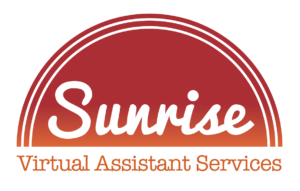In management, fostering autism acceptance stands as a pivotal objective, aiming to cultivate work environments that recognize and celebrate the unique contributions of individuals on the autism spectrum.
By integrating strategies emphasizing inclusivity and understanding, businesses can unlock a new world of creativity and innovation. This approach not only provides autistic individuals with meaningful employment opportunities but also enriches organizational culture by promoting diversity and adaptability.
Keep reading to explore practical ways in which companies can foster autism acceptance, illustrating the profound impact of such initiatives on both autistic people and the broader corporate landscape.
Practical Steps Toward Fostering Autism Acceptance
Promoting autism acceptance and awareness at work is crucial all year, not just during Autism Awareness Month.
Striving to understand and support neurodivergent people should be a consideration in all aspects of company culture, from recruitment and onboarding to daily interactions and accommodations.
Taking practical steps can help create a supportive and inclusive environment where all employees feel valued and respected. By championing workplaces that welcome the strengths and perspectives of neurodiverse individuals, we can build a diverse and empowering culture.
Creating Inclusive Job Descriptions
One key step in championing autism acceptance at work is crafting job descriptions that welcome and support individuals on the autism spectrum. This means using clear, direct language and highlighting the company’s commitment to diversity and inclusivity.
By outlining a supportive space for neurodivergent talent in job descriptions, companies can foster a more inclusive culture that respects neurodiversity and offers equal opportunities for everyone. And in turn, by opening up the talent pool to new hire opportunities, you will unleash vast untapped potential.
It’s one of the best ways to take advantage of the chance to bring fresh perspectives and innovative ideas to your team.
Implementing Autism-Friendly Recruitment Processes
Adjusting recruitment processes to be more autism-friendly is critical in fostering acceptance within an inclusive workplace.
This approach involves providing detailed agendas for interviews, offering the option for written responses to questions, and being receptive to unconventional interview methods that allow applicants to demonstrate their unique strengths effectively.
By creating a supportive and accommodating environment for neurodiverse employees, organizations can tap into a diverse talent pool and promote a culture of understanding and respect.
Training and Awareness Programs
Implementing comprehensive training and awareness programs for all employees is an essential component of fostering autism acceptance in the workplace.
By providing in-depth training sessions and interactive workshops, organizations can effectively dispel common myths surrounding autism, cultivate a culture of understanding and empathy, and empower employees with the necessary skills to support their colleagues on the spectrum in a meaningful and impactful way.
This approach enhances inclusivity and creates a supportive environment where neurodivergent employees can thrive professionally and contribute their unique perspectives to the team.
Developing Support Networks
A strong support system within organizations can positively impact anyone, but the benefit to your neurodiverse employees is massive!
These networks provide a safe space for individuals to share their experiences, gain valuable advice, and establish meaningful connections with others who understand their unique challenges. By fostering a sense of community and belonging, these networks offer compassionate support and create inclusive environments for personal growth and development.
AudHd Asset is a Facebook group that provides peer support, resources, and networking opportunities for entrepreneurs and small business owners with autism spectrum disorder, or with other neurological differences.
The Autism Self Advocacy Network, a non-profit organization, provides resources and support to individuals on the autism spectrum. ASAN champions the inclusion of autistic individuals in decision-making processes that impact them, such as legislation, media representation, and disability services.
By connecting people with similar (but unique) experiences and providing valuable resources, these support networks play a vital role in fostering autism acceptance and understanding in the work environment.
Leveraging Technology to Support Autism Acceptance
In today’s rapidly advancing digital age, technology emerges as a crucial catalyst for fostering widespread autism acceptance and understanding. By providing specialized communication tools tailored to enhance comprehension and empathy, as well as innovative software designed to accommodate the distinctive working preferences of individuals on the spectrum, technology stands as a formidable asset in cultivating a truly inclusive and supportive workplace environment.
Some examples of technology that can support individuals with autism in the workplace, or other special needs, include:
- Communication apps that offer visual and auditory cues to enhance understanding and reduce misinterpretation.
- Time-management software to help individuals on the spectrum better manage their tasks and routines.
- Virtual reality training programs designed to facilitate social interactions and communication skills.
Finding An Appropriate Nonprofit Organization for Autism Acceptance and Support
When seeking out non-profits and organizations to support autism acceptance and provide valuable resources, it is crucial to identify innovative programs; but only the ones that are genuinely aligned with the interests and needs of the autistic community.
It’s important to note that while some organizations, such as Autism Speaks and the Autism Society of America, are widely recognized, they have also faced criticism from many autistic adults within the neurodivergent community for not adequately representing or benefiting autistic individuals.
To ensure you engage with groups that genuinely foster acceptance and offer substantial support, look for organizations that prioritize the voices and experiences of autistic people. These entities should actively involve autistic individuals in their decision-making and policy formulation.
Seek organizations with a clear commitment to promoting neurodiversity, offering support tailored to the unique needs of autistic individuals, and advocating for their rights and inclusion in all aspects of society. Effective support networks and non-profits emphasize empowerment, self-advocacy, and creating inclusive communities where autistic people can thrive on their own terms.
Some recommended strategies include researching the organization’s mission, reviewing its programs and initiatives, and seeking feedback from the autistic community about their experiences and perceptions of its impact. This approach will help you identify and support those organizations that truly make a difference in promoting autism acceptance and providing meaningful support to the autistic community.
Measuring the Impact of Fostering Autism Acceptance
Lastly, companies must measure the impact of their autism acceptance initiatives. This involves assessing the positive outcomes for employees on the spectrum and evaluating the broader benefits to the company culture, innovation, and overall productivity.
Managers and CEOs can measure effectiveness through regular feedback sessions, employee satisfaction surveys, and performance metrics. Additionally, engaging with autistic employees directly to understand their experiences and suggestions for improvement allows for a more nuanced appreciation of the initiatives’ effectiveness.
Another key factor in measuring impact is observing changes in company culture, such as increased collaboration, enhanced problem-solving capacities, and a greater diversity of thought. Ultimately, the success of autism acceptance programs should be gauged not just by the immediate benefits to individuals with autism but by the long-term positive transformations within the workplace environment.
Establishing a continuous feedback loop, where insights gained from these evaluations inform future strategies, ensures that the initiatives remain dynamic and responsive to the needs of all employees.
This iterative process underscores the organization’s commitment to fostering a truly inclusive environment where every employee, regardless of neurodiversity, can flourish and achieve their full potential.
Conclusion
Fostering autism acceptance in the workplace is a moral imperative and a strategic advantage that can lead to greater innovation, productivity, and a more inclusive corporate culture.
Integrating supportive networks, leveraging technology, and partnering with appropriate nonprofits and organizations underscores the importance of a multifaceted approach. Measuring the impact of these initiatives is crucial for sustainable growth and ensuring that the strategies implemented truly benefit autistic employees and contribute to a more accepting and understanding environment.
By prioritizing the perspectives and experiences of those on the autism spectrum, companies can cultivate a more diverse and dynamic workforce where every individual has the opportunity to thrive with a higher quality of life.
The path toward the true acceptance of autism is ongoing, and it requires commitment, empathy, and continuous learning from all involved to create a genuinely inclusive society.


